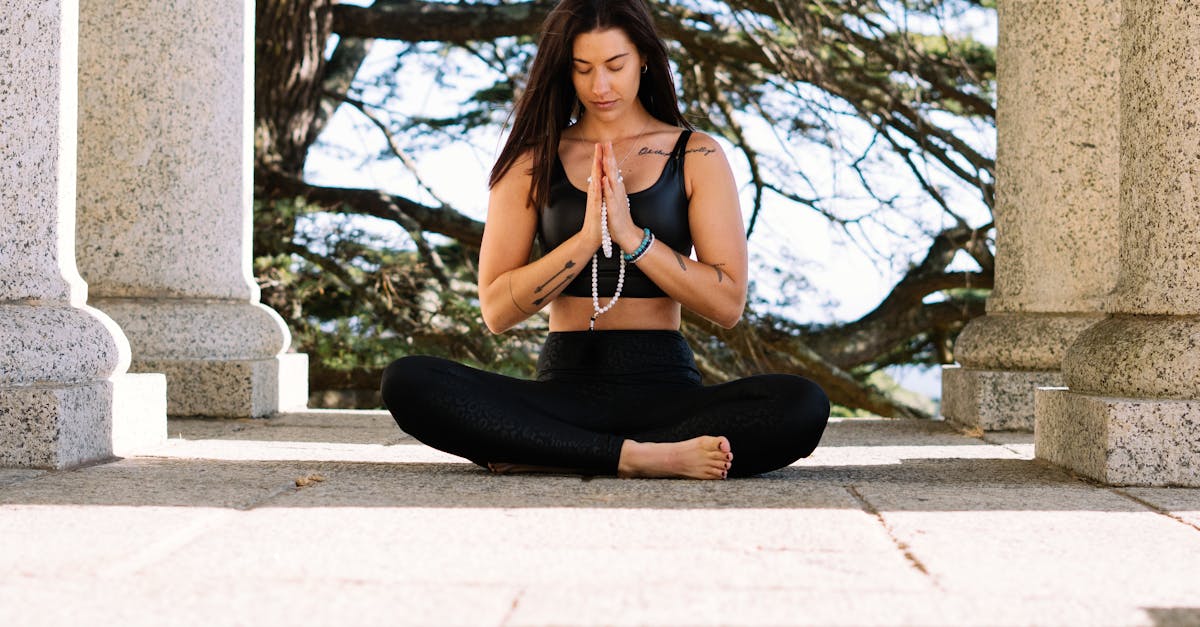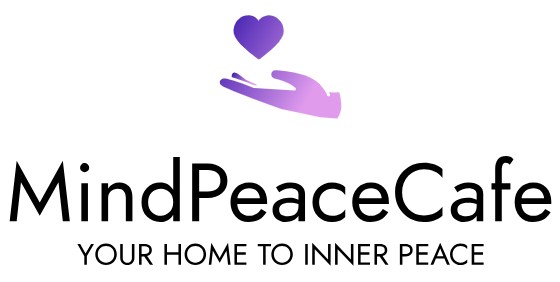Harmonizing Body and Mind: Embracing Meditation Posture for Serene Sleep

Unlocking Peaceful Sleep: Mastering the Art of Meditation Posture seeks to provide valuable insights into combatting insomnia through the transformative power of meditation postures. In our fast-paced, high-stress world, insomnia has become increasingly prevalent and impactful, affecting the quality of life for many. By understanding the deep connection between meditation posture and restful sleep, this article aims to guide readers toward achieving a more balanced and peaceful state of being. By exploring the role of meditation postures, the science behind their effectiveness, and techniques for incorporating them into daily life, this article serves as a comprehensive resource for those seeking relief from sleep disturbances and a pathway to holistic well-being.
1. Understanding Insomnia and Its Impact on Sleep
Welcome to the insightful exploration of insomnia and its profound impact on sleep. In today’s fast-paced society, the rise of insomnia has affected countless individuals, disrupting their ability to rest and rejuvenate. The repercussions of this sleep disorder extend beyond mere fatigue; they encompass mental alertness, emotional well-being, and physical health. Stress, anxiety, and other modern-life challenges often contribute to the onset and persistence of insomnia, highlighting the pressing need for effective solutions. Understanding the crucial role of meditation in addressing sleep issues is central to this discourse, as it offers a holistic approach to alleviating the symptoms of insomnia and fostering restorative sleep.
Insomnia not only disrupts the sleep cycle but also affects productivity, mood, and overall quality of life. By exploring the effects of insomnia, we can gain a deeper understanding of its far-reaching implications, from impairing cognitive function and concentration to compromising immune health. This prompts a vital inquiry into the potential solutions available to counter these effects and restore balance. Meditation emerges as a transformative practice in addressing sleep disturbances, providing a natural, drug-free alternative that harmonizes the mind and body, paving the way for improved sleep quality and overall well-being.
As we continue this journey of discovery, we will unveil the interconnected relationship between insomnia and stress, shedding light on the importance of holistic approaches such as meditation to address and mitigate these profound effects. Together, we’ll delve into the art of meditation posture, igniting a path toward peaceful, restorative sleep that has the potential to transform lives.
The Rise of Insomnia in the Modern World
Let’s delve into the pervasive presence of insomnia in our modern world and take a closer look at its profound effects on our overall well-being. With the accelerated pace of life, amplified stressors, and a continuous stream of digital engagement, insomnia has become increasingly prevalent, affecting a significant portion of the global population. The implications of insomnia extend beyond mere sleeplessness, seeping into daily life and impacting various facets of our health and functionality. This makes it imperative to explore this growing issue, understand its prevalence, and seek effective ways to address and alleviate its effects.
Insomnia, often linked to factors such as work-related stress, digital overstimulation, and lifestyle pressures, has emerged as a significant concern in the modern world. As we unpack the prevalence of this sleep disorder, it becomes evident that its impact transcends the individual, exerting influence on societal productivity and overall public health. Not only does it affect mental alertness and emotional stability, but it also poses considerable risks to physical health and immune function.
Recognizing the intersection between insomnia and our collective well-being allows us to appreciate the urgency in addressing this escalating issue. By seeking a deeper understanding of its prevalence and impact, we can pave the way for informed interventions and holistic approaches that encourage better sleep practices and promote overall well-being for individuals and communities alike.
The Relationship Between Insomnia and Stress
Let’s embark on a journey to unravel the intricate relationship between insomnia and stress, discovering how these two are deeply interconnected, exerting a profound impact on the quality of our sleep. In the modern, fast-paced world, stress has become a frequent companion, intertwining with our daily lives and, in many cases, disrupting our ability to attain restful, restorative sleep. This symbiotic connection between stress and insomnia is crucial to understand, as it sheds light on the complex nature of sleep disturbances and offers insights into holistic pathways for addressing them.
Stress, arising from various sources such as work pressures, academic responsibilities, family dynamics, and societal expectations, often infiltrates our minds and bodies, hindering our capacity to unwind and attain peaceful sleep. This, in turn, can lead to a disruptive cycle where the lack of quality sleep further exacerbates stress, perpetuating a challenging loop that impacts overall well-being. Understanding this intricate relationship provides a gateway to exploring effective interventions and practices that can break this cycle and foster a more harmonious balance between stress and sleep.
By comprehending the intertwined nature of stress and insomnia, we gain a profound understanding of the significance of targeted approaches that address both components simultaneously. This not only entails managing stress-related triggers but also emphasizes the importance of implementing mindful practices, such as meditation and relaxation techniques, to counter the effects of stress and nurture a conducive environment for restorative sleep.
2. The Transformative Power of Proper Meditation Posture

Discover the profound impact of proper meditation postures as we embark on a journey to uncover the transformative power they hold over sleep and overall well-being. Meditation postures, often regarded as fundamental elements of the practice, play a vital role in promoting restorative sleep and nurturing holistic wellness. The alignment of body and mind through these postures is central to creating an environment conducive to relaxation, tranquility, and inner balance, transforming the quality of sleep and, subsequently, the fabric of our daily lives.
As we delve into the world of meditation postures, we unravel their capacity to influence the mind-body connection, fostering a serene space for rejuvenation and mental clarity. These postures not only aid in physical relaxation but also guide the mind towards a state of calm, minimizing the impact of daily stressors and cultivating an inner quietude that is conducive to falling asleep and staying asleep. Through this exploration, we unearth the potency of integrating proper meditation postures as an integral part of a bedtime routine, serving as a cornerstone for achieving a deep, restful slumber and awakening revitalized each day.
By comprehending the profound impact of meditation postures on sleep and overall well-being, we unlock the potential for a transformative shift in how we approach rest and relaxation. This understanding lends itself to a comprehensive view of holistic wellness, offering an array of techniques and postures that can be tailored to individual needs, ultimately crafting a personalized pathway to improved sleep quality and a more balanced, harmonious existence.
Exploring the Role of Meditation Posture in Sleep Improvement
Embark on a captivating journey as we explore the pivotal role of meditation posture in achieving restful and revitalizing sleep. The art of meditation posture extends beyond the realms of spiritual practice, intertwining with our physical and mental well-being, especially during moments of relaxation and sleep. By delving into the connection between meditation posture and sleep improvement, we uncover a profound synergy that harmonizes the body and mind, nurturing an environment conducive to deep, rejuvenating slumber.
Meditation postures serve as a conduit, guiding individuals towards physical comfort and mental tranquility, laying the groundwork for a restful night’s sleep. In engaging with specific postures, individuals can cultivate an enhanced awareness of their body and its alignment, creating a sense of inner peace that transcends into the realm of sleep. This paves the way for improved sleep cycles and an overall sense of vitality upon waking, heralding the transformative potential of integrating these postures into daily sleep routines.
As we unravel the connection between meditation posture and sleep improvement, we discover an array of postures and techniques tailored to accommodate varying needs and preferences. Whether through seated positions that encourage spinal alignment and relaxation or reclining postures that promote unwinding and release of tension, the multifaceted world of meditation postures offers a treasure trove of strategies aimed at enhancing the sleep experience, cultivating tranquility, and fostering a deeper connection with the self.
Understanding the Science Behind Meditation Postures
Prepare to dive into the fascinating realm of the scientific research supporting the positive effects of proper meditation postures on sleep quality. In recent years, scientific inquiry into the realm of meditation has burgeoned, illuminating the substantial impacts of meditation postures on various aspects of well-being, including sleep quality. This burgeoning body of research not only corroborates the age-old wisdom surrounding the benefits of meditation but also provides a robust foundation for understanding the physiological and psychological mechanisms through which meditation postures contribute to enhanced sleep.
Scientific investigations have revealed that engaging in specific meditation postures triggers a cascade of physiological responses, including reductions in heart rate, blood pressure, and stress hormone levels. These changes create an internal environment conducive to relaxation and sleep, fostering an optimal setting for the body to embrace restorative rest. Moreover, neuroscientific studies have demonstrated that meditation postures stimulate regions of the brain associated with calmness and emotional regulation, offering mechanistic insights into how these postures influence sleep cycles and overall sleep quality.
As we navigate through the scientific landscape underpinning meditation postures and their impact on sleep quality, we encounter an array of compelling findings that underscore the tangible benefits of intentional posture practice. From improvements in sleep latency and duration to enhanced sleep efficiency and subjective perceptions of sleep quality, the scientific literature provides a robust testament to the transformational potential of integrating meditation postures into one’s sleep routine.
3. Mastering the Art of Meditation for Better Sleep
Welcome to the realm of mastering the art of meditation for better sleep, where we embark on a journey to uncover effective meditation techniques and practices designed to counter insomnia and promote improved sleep. Amid the hustle and bustle of modern life, many individuals grapple with sleep disturbances, ranging from occasional restlessness to chronic insomnia. Through the mastery of meditation, individuals can cultivate a toolkit of practices that foster tranquility, mitigate stress, and pave the way for achieving restorative, deep sleep.
Meditation serves as a transformative practice, offering a varied repertoire of techniques that can be tailored to individual needs and preferences. From mindfulness meditation and loving-kindness meditation to body scan and visualization practices, the world of meditation is rich with modalities that cater to diverse experiences and objectives. These techniques serve as versatile tools, guiding individuals towards a state of inner calm and relaxation, preempting the obstacles that hinder tranquil sleep.
Delving into the art of meditation not only presents an opportunity to counter insomnia and sleep disturbances but also offers a pathway to holistic well-being. Through these practices, individuals can forge a deeper connection with their inner selves, embarking on a profound journey of self-discovery and mindfulness. By integrating meditation into their daily routine, individuals can craft a sanctuary of peace, fostering the ideal environment for embracing rejuvenating sleep and awakening to a new day with renewed vitality and serenity.
Guided Meditation for Relaxation and Sleep
Embark on a journey of tranquility and rest as we delve into the world of guided meditation for relaxation and sleep. Guided meditation serves as a gentle, yet potent method tailored to enhance relaxation and foster improved sleep quality. Whether you’re seeking solace from the rigors of daily life or aiming to cultivate a more serene sleep environment, guided meditation offers a treasure trove of techniques and practices designed to guide individuals towards inner peace and restorative sleep.
Engaging in guided meditation not only offers an opportunity for mental reprieve but also serves as a powerful instrument for reclaiming balance amid the whirlwind of modern existence. These guided sessions, often led by experienced practitioners, provide a comforting space for individuals to unwind, release tension, and prepare both mind and body for a night of quality sleep. Through gentle encouragement and soothing imagery, guided meditation fosters an environment that primes individuals for a tranquil, restful slumber, nurturing the body’s natural ability to embrace rejuvenating rest.
From body scan meditations that facilitate physical relaxation to progressive muscle relaxation and visualizations that transport the mind to serene landscapes, the array of guided meditation methods caters to diverse preferences, enabling individuals to weave a tapestry of relaxation and sleep practices that resonate with their unique needs and experiences.
Breathing Techniques and Their Impact on Sleep
Let’s embark on a journey into the world of breathing techniques and their profound impact on sleep, where we’ll explore an array of exercises linked to improving sleep patterns and combatting insomnia. Breathing exercises serve as powerful tools, offering individuals the means to regulate their breath and cultivate a state of tranquility that sets the stage for restful, rejuvenating sleep. From simple deep breathing exercises to more focused practices such as diaphragmatic breathing and the 4-7-8 technique, the world of breathwork presents an expansive palette of methods that can be tailored to each individual’s unique needs and preferences.
As we delve into the realm of breathing techniques, we uncover their capacity to mitigate the effects of stress, anxiety, and restlessness, establishing a foundation for improved sleep quality. These exercises not only serve as gateways to physical relaxation but also stimulate the body’s relaxation response, setting in motion a cascade of physiological changes that prime the body and mind for deep, restorative sleep. Through the integration of intentional breathing practices, individuals can reclaim control over their sleep patterns and counter the disruptive influence of modern-day stressors, nurturing an environment conducive to tranquil slumber.
Exploring breathing techniques offers a window into the reservoir of self-care practices that can seamlessly integrate into daily routines, fostering a holistic approach to sleep enhancement. By incorporating these exercises as part of a bedtime ritual, individuals can establish a harmonious pre-sleep routine, enabling them to unwind, release tension, and embrace the serenity necessary for a night of restorative rest.
4. Integrating Meditation Posture into Daily Routine
Let’s explore the enriching journey of integrating meditation posture into your daily routine, a practice that can yield lasting sleep improvements and foster overall wellness. Incorporating meditation posture as a regular part of your daily life carries profound potential to nurture not only the quality of your sleep but also your holistic well-being. By seamlessly weaving these postures into your daily rhythm, you create a sanctuary of tranquility and centering that transcends into the realm of sleep, optimizing your body and mind for restorative rest each night.
Embracing meditation posture within your daily routine offers a gateway to harmonizing body and mind, cultivating a balance that permeates your entire being. Whether through morning stretches that awaken your body, midday posture practice that offers a respite from the day’s demands, or bedtime meditation that settles the mind for peaceful sleep, integrating these postures into your routine nurtures a sense of continuity and stability. This multi-faceted approach transcends the boundaries of sleep, extending into your waking moments, where it fosters a heightened state of presence and resilience to daily stressors.
By integrating meditation posture into your daily routine, you forge a pathway toward a healthier, more serene existence. The creation of a calm, nurturing space within your daily life paves the way for an enhanced sleep experience and an overall sense of vitality. As you infuse each day with intentional moments of mindfulness and tranquility, you establish a rhythm that supports lasting sleep improvements and cultivates a landscape of holistic wellness.
Creating a Comfortable Meditation Space
Creating a comfortable meditation space is a transformative step towards enhancing relaxation and promoting better sleep. Designing a calming meditation space offers an opportunity to craft a sanctuary within your home, fostering an environment that nurtures tranquility and supports holistic well-being. By curating a dedicated space that resonates with peace and serenity, you create an immersive experience that transcends the physical realm, offering a respite from the stresses of daily life and promoting restful sleep. When designing your meditation space, consider incorporating elements that evoke a sense of calm and positivity. Soft, natural lighting, soothing colors, and elements of nature can all contribute to the ambiance. Introducing comfortable seating or supportive cushions can enhance physical comfort, allowing you to fully immerse yourself in your practice. Additionally, personalized touches such as candles, essential oils, or calming artwork can infuse the space with a sense of familiarity and warmth, amplifying the tranquil atmosphere. Carefully selecting the location of your meditation space can also play a significant role in its effectiveness. Choose an area that offers privacy and minimal distractions, allowing you to fully engage with your practice. This space should feel inviting and free from clutter, providing a serene backdrop that encourages relaxation and inner peace. By intentionally curating a tranquil environment, you pave the way for a restorative meditation practice and improved sleep quality. Ultimately, by investing time and attention into creating a comfortable meditation space, you establish a nurturing haven that supports relaxation, mindfulness, and ultimately, better sleep. This space becomes a reflection of your commitment to self-care, serving as a constant reminder to prioritize moments of peace and rejuvenation in your daily life.
Establishing a Bedtime Meditation Ritual
Creating a bedtime meditation ritual provides a gentle yet powerful framework for winding down and preparing the mind for restful sleep. As we navigate the demands of daily life, carving out moments dedicated to self-care and tranquility becomes essential. By establishing a nightly meditation routine, you cultivate a sacred space for introspection and relaxation, setting the stage for a peaceful transition into slumber. Begin by allocating a specific time each night to engage in your meditation ritual. Whether it’s just before bed or as part of a pre-sleep wind-down routine, consistency fosters a sense of familiarity and signals to your mind and body that it’s time to unwind. This regularity helps establish a mental association between your ritual and the impending onset of rest, preparing you for a harmonious transition into sleep. Craft a serene environment for your bedtime meditation, incorporating elements that soothe the senses and invite tranquility. Soft lighting, calming scents, and comfortable seating or bedding can all contribute to the ambiance. Embracing guided meditation or grounding breathing exercises can further enhance the relaxing effects of your practice, gently guiding your mind towards a state of peaceful surrender and quietude. By integrating a bedtime meditation ritual into your nightly routine, you reinforce your commitment to self-nurturing practices and create an invaluable space for introspection and clarity. This intentional act of self-care not only promotes a tranquil mind before sleep but also establishes a sense of inner balance that carries into your nightly rest, fostering an environment conducive to deep, restorative sleep.
How long should I meditate before bed to improve sleep?
The ideal duration for bedtime meditation varies from person to person. However, starting with 10-15 minutes of meditation can be beneficial. Experiment with different durations to find what works best for you. The key is to create a consistent routine to signal to your mind and body that it’s time to wind down and prepare for rest.
Should I meditate in silence or use calming music for bedtime meditation?
Whether to meditate in silence or with calming music is a matter of personal preference. Some individuals find that gentle, soothing music enhances their meditation experience, while others prefer silence. Experiment with both to see which option helps you achieve a deeper state of relaxation and tranquility before bedtime.
Can I meditate lying down before sleep, or is it better to sit up?
Both lying down and sitting up for meditation before sleep have their benefits. Lying down may be more comfortable for some and can encourage relaxation, especially for body scan or progressive muscle relaxation practices. Sitting up can help maintain alertness and prevent falling asleep during meditation. Choose the posture that allows you to relax while remaining attentive.
What can I do if my mind wanders a lot during bedtime meditation?
It’s common for the mind to wander during meditation. When this happens, gently redirect your focus to your breath, a mantra, or the sensations in your body. Accept that distractions will arise and gently guide your attention back to your meditation. Over time, this redirection becomes easier, enhancing your ability to unwind and prepare for restful sleep.




